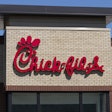
Members of Generation Z – also called Gen Z – the demographic born between 1996 and 2010, are more open to new forms of food technology, like meat alternatives, according to a recent study from global communications consultancy, Ketchum.
The oldest members of Gen Z are set to graduate college and start jobs this year, which means their purchasing choices are becoming increasingly influential. Also, depending on their career paths, they may be the ones making new laws, marketing plans or food regulations.
While this may scare some in higher management roles, others may find that hiring members of Generation Z could be beneficial in creating a marketing plan or products that appeal to said generation while still reaping the benefits of a successful product.
Since large companies, like Cargill and Tyson Foods, are making huge investments in a plant-based protein portfolio, I think it is safe to assume that this meat alternative trend isn't going anywhere.
Charleston | Orwig, a marketing and communications agency, revealed that some consumers may still be skeptical about lab-grown options. Forty percent of those surveyed said that they were unwilling to try foods or beverages created in the lab. Would a member of Generation Z understand why? And if so, could they use that to help the company for which they work?
Regardless of if the company one works for is for or against meat alternatives, I think having someone from Generation Z on the team is important. Companies spent so much time trying to figure out Millennials that it seems to me they forgot the members of Generation Z would soon be growing in consumer power and many believe will not have the same demands as the generation before them.
Gen Z has its own values, defining moments and behaviors, according to Maria Bailey, CEO of BSM Media.
The things that have impacted this generation as they have grown up are different than what impacted the Millennials, so Generation Z's expectations and behaviors are different, Bailey explained.
"I think this younger generation is more aspirational. They're more entrepreneurial in spirit as well. They're more about collaborating with brands," said Bailey.
The Generation Z family meal planner will not likely be content in watching a video on how to cook a chicken dinner, like the Millennials before them, instead they will want to collaborate with the meat industry or alternative protein industry about exactly what it is they want and how they want it delivered to them.
Who better to understand their demands than a member of the same generation? I think it is time for companies to hire members of Gen Z fresh out of college, what they may lack in industry experience they could make up for in knowledge of the up-and-coming consumers. Ultimately, this could help companies persuade consumers in its favor.

















